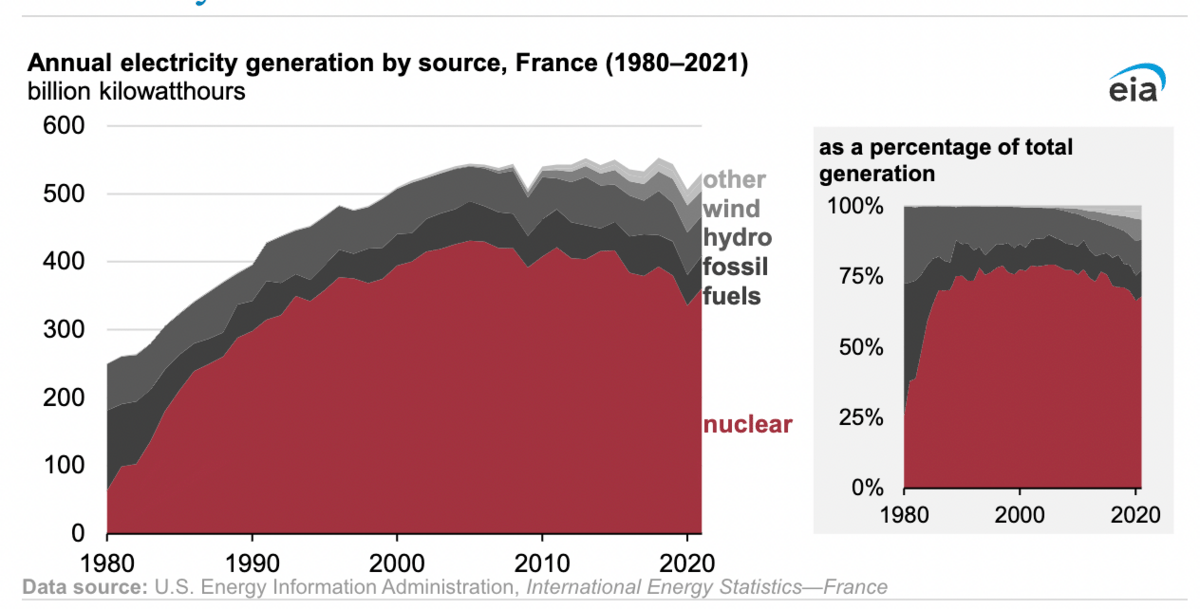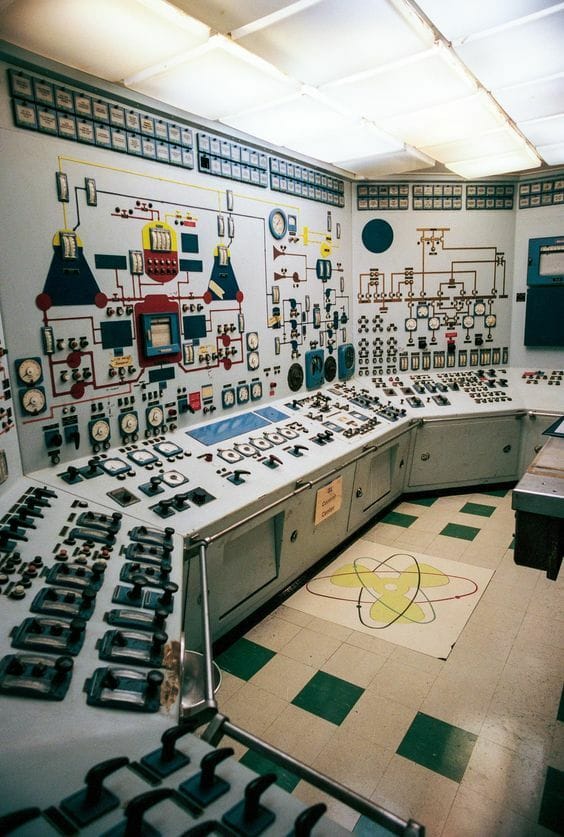Wind's Woes
Wind energy's troubled times continue in permitting, profitability, and durability.
In America, the wind industry has faced difficulties in transporting its large equipment due to pandemic-related supply chain and logistics issues. Uncertainty surrounding federal tax policy has also greatly hindered installations. Companies are awaiting clarification from the Treasury Department on how a project can qualify for tax credits under the Inflation Reduction Act.
"New wind installations plunged 77.5% in the third quarter of 2022 versus the same period the year before," reports the Wall Street Journal.
When it comes to profitability, major European wind developers have take huge hits.
"Denmark's Orsted, the world's No. 1 offshore wind farm developer, late on Thursday announced a writedown on a large U.S. offshore wind project and an earnings forecast for 2023 that fell short of analyst estimates," reports Reuters. "Madrid-listed Siemens Gamesa, the world's biggest offshore wind turbine maker, reported a 472 million euro ($510 million) hit to operating profit due to faulty turbine components that require higher warranty and maintenance provisions."
There have been a number of recent instances of wind turbine malfunctions in the US and Europe, including failures of crucial parts and complete collapses. Some experts in the industry claim that these incidents are occurring more frequently, even though they affect only a small percentage of installed turbines. The malfunctions have resulted in significant costs for the top three Western turbine manufacturers: GE, Vestas Wind Systems and Siemens Energy's Siemens Gamesa unit. Additionally, the failures may also lead to higher insurance rates.
"The race to add production lines for ever-bigger turbines is cited as a major culprit by people in the industry," reports Bloomberg. “We’re seeing these failures happening in a shorter time frame on the newer turbines, and that’s quite concerning,” Fraser McLachlan, chief executive officer of London-based GCube Underwriting Ltd., told the publication.
GCube insures nearly $3.5 billion in wind assets in 38 countries. McLachlan told Bloomberg that if the turbine failure rate continues its climb, "insurance premiums could increase or new coverage limits could be imposed."
A New Day for NuScale
Small modular reactors are on the menu in America.
The Nuclear Regulatory Commission (NRC) has issued its final rule certifying NuScale Power’s small modular reactor design. This makes NuScale's power module the first small modular reactor (SMR) design to be certified by the agency, and only the seventh reactor design approved for use in the United States.
"The rule will go into effect on February 21, which will allow utilities to reference the NuScale design when applying for a combined license to build and operate a reactor," reports the American Nuclear Society.
“We are thrilled to announce the historic rulemaking from the Nuclear Regulatory Commission for NuScale’s small modular reactor design, and we thank the Department of Energy for their support throughout this process,” said John Hopkins, NuScale’s president and chief executive officer. “The DOE has been an invaluable partner with a shared common goal—to establish an innovative and reliable carbon-free source of energy here in the U.S. We look forward to continuing our partnership and working with the DOE to bring the UAMPS [Utah Associated Municipal Power Systems] Carbon Free Power Project to completion.”
Acting FERC Chairman Lays Out Priorities
Willie Phillips, the newly named Federal Energy Regulatory Commission (FERC) acting chairman, has laid bare his top priorities: grid reliability, transmission expansion, and environmental justice.
"President Joe Biden selected Phillips as acting chairman earlier this month when former Chairman Richard Glick’s tenure ended after Sen. Joe Manchin, D-W.Va., declined to hold a nomination hearing for his second term," reports Utility Dive. "FERC, a five-member agency, now has four sitting commissioners, potentially leaving them evenly split on some issues."
During FERC’s open meeting, Phillips said that protecting the grid from cyber and physical attacks and preparing for extreme weather are the major concerns for the agency.
Phillips believes the United States stands at the threshold of the energy transition. “We need to incentivize smart investments in transmission to accommodate new generation, while also ensuring grid reliability and reducing costs for consumers,” he said. “I’m working with my colleagues as speedily as I can to come together on a consensus to deliver on the momentum that we built in the last year. I believe we have a very good chance to make progress.”
Phillips also wants to ensure that historically disadvantaged communities, landowners, and tribal communities can have their voices heard at FERC “in a meaningful way, every step of the way.”
Like what you're reading? Click the button below to get Grid Brief right in your inbox!
Conversation Starters
The Dutch government is about to close Europe's largest gas field. "The Dutch government plans to close the Groningen gas field this year despite Europe’s precarious supply position. Groningen is the largest gas field in Europe," reports Oilprice.com. “We won’t open up more because of the safety issues,” Hans Vijbrief said. “It is politically totally unviable. But apart from that, I’m not going to do it because it means that you increase the chances of earthquakes, which I don’t want to be responsible for.”
House Republicans are gunning for Biden's solar ambitions. “House Republicans are aiming to reverse a controversial Biden administration move to waive solar tariffs that seek to block heavily subsidized Chinese products from flooding the U.S. by way of Southeast Asia. Rep. Bob Latta (R-Ohio), a high-ranking member of the Energy and Commerce Committee, plans to bring administration officials before the panel to grill them on the decision, which was initially made in June and finalized by the Commerce Department in September,” reports E&E News. “Latta also is signaling that Republicans are interested in deploying a rarely used legislative tool — the Congressional Review Act (CRA) — to formally revoke the Biden administration’s decision.”
Nuclear generated 68% of France's electricity in 2021. "France has one of the largest nuclear power programs in the world. Nuclear power plants in France generated 361 billion kilowatthours of electricity in 2021, accounting for 68% of the country’s annual electricity generation, the highest nuclear generation share in the world," reports the Energy Information Administration. "France has 56 operable nuclear reactors with a total capacity of 61 gigawatts (GW), second only to the95 GW nuclear fleet in the United States. Nuclear plants accounted for 19% of U.S. electricity generation in 2021. Although France’s first commercial nuclear reactor came online in the 1960s, the country began the large-scale plan to build its nuclear power fleet in the mid-1970s, following the1973 oil crisis. At the time of the oil crisis, oil-burning power plants generated a significant share of France’s electricity."

Crom's Blessing
